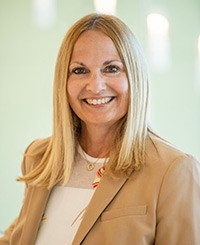As part of our mission to provide world-class, compassionate care, we want to ensure that everyone associated with Stony Brook Medicine — patients, visitors, faculty, staff and those within the community — feels a sense of belonging in everything we do.
Sadly, the COVID-19 pandemic drew attention to the healthcare disparities that exist nationally and within our own region. At Stony Brook Medicine, we have always been committed to creating a culture of health equity and belongingness for all — a healthcare environment in which everyone who walks through our doors feels safe, respected, valued and heard. Our goal is to strengthen, amplify and sustain Stony Brook Medicine’s efforts around eliminating health inequities by improving health outcomes and closing any gaps in healthcare disparities that have been rooted in historical injustices, biases and discrimination.
Although we may be referring to it by a new name, health equity is not something that is new to Stony Brook. For decades, we’ve developed programs and offered services to help patients who have encountered barriers to care, and we want to build on that strong foundation. Some of these programs include our Mobile Mammography Van, our free prostate cancer screening program, the School of Dental Medicine mobile dental clinic and Stony Brook HOME (Health Outreach and Medical Education), a medical student-run, physician-supervised free clinic that provides high quality and comprehensive primary care to uninsured adults on Long Island.
During COVID, we enhanced our telehealth services, created a robust vaccination POD program for our staff, patients and the community, and developed fact sheets and information in both English and Spanish about available community resources as well as tips to stay healthy during the pandemic that were shared with our community partners for those in the Spanish-speaking community.
We’re proud that all Stony Brook Medicine hospitals have been named national leaders in LGBTQ+ healthcare equality by the Human Rights Campaign Foundation. And recently, the Renaissance School of Medicine established the region’s first chapter of Black Men in White Coats™ — which seeks to raise the number of Black men in the field of medicine by exposure, inspiration and mentoring the young Black men in our underserved communities.
To support and increase these efforts, a Health Equity Steering Committee has been formed at Stony Brook Medicine, which is co-chaired by Nicole Rossol, our Chief Patient Experience Officer, and Dr. Judith Brown Clarke, Stony Brook University’s Vice President for Equity and Inclusion, and Chief Diversity Officer. Four subcommittees were also established to focus on key priorities. They include Data Driven Care Delivery; Training and the Culture of Learning; Diversity, Inclusion Leadership and Governance; and Community Partnerships. I’d like to thank Dr. Eric Morley, Alex George, Colette Brown and Patricia Cooper for serving as chairs on these subcommittees. Together, the team members of these four subcommittees will work to address specific goals associated with health equity, diversity and inclusion.
Looking at our own patient data as well as data for Suffolk County, we learned the top three social determinants of health affecting Suffolk County residents are inadequate access to healthcare services, a high level of substance abuse, and poor nutrition and low food access. We are initially focusing our efforts to address food insecurity and connecting patients to community resources for assistance and support. It’s something that we know directly affects our patients and their families. Currently, we are partnering with Island Harvest, providing fresh fruits and vegetables from our garden rooftop, which we have been doing for many years, and most recently, we initiated a food pantry at Stony Brook University Hospital to help heal patients with diabetes and cancer.
Working in healthcare, we’ve all dedicated ourselves to do meaningful work by improving the lives of our patients. And we’re fortunate to have such a devoted staff be part of this journey to improve health equity at Stony Brook. We can also count on assistance from many organizations, including the Greater New York Hospital Association, The Joint Commission, Centers for Medicare and Medicaid Services (CMS) and the American Hospital Association, to provide industry best practices, resources and guidance to aid this important work at Stony Brook Medicine.
The Joint Commission and CMS have now begun to require that specific efforts are undertaken to address healthcare disparities, and I’m happy to report that we are already well ahead of the curve. In fact, we plan to seek advanced certification in Health Care Equity from The Joint Commission in the near future.
There’s a lot of hard work ahead, but I’m excited about the projects we plan to carry out, and I know that with all of us working together, we will accomplish great things for the benefit of our patients, faculty, staff and the community.
Carol




Thanks Carol. I have only worked here 12 years, it is great to learn this history, and know we have always been dedicated to health equity and never turning someone away.